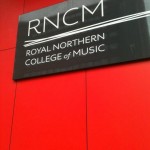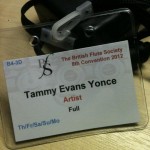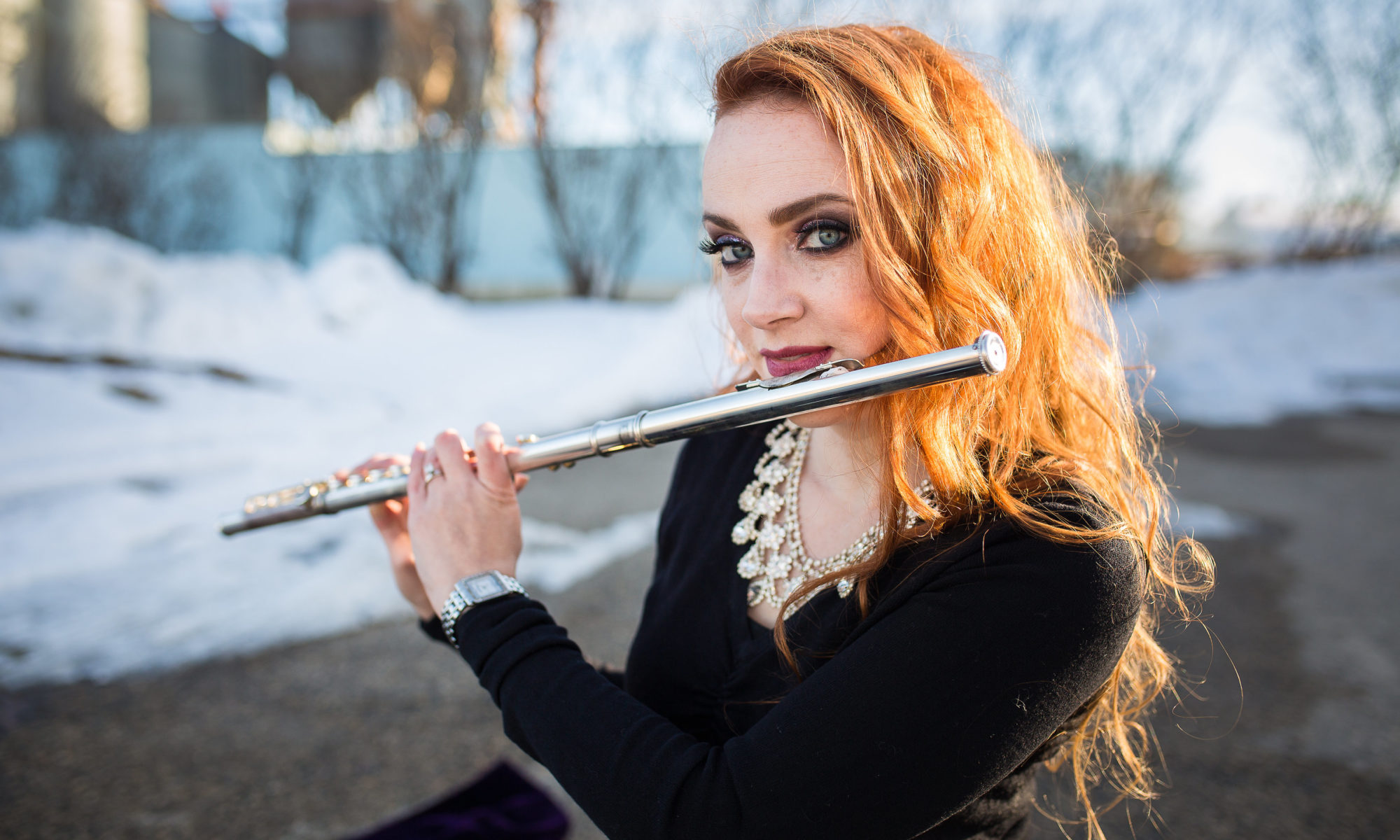 This year, I was very fortunate to attend the convention of the British Flute Society. It was held at the Royal Northern College of Music in Manchester, England. Overall, it was very well-organized, and I found the people I met there to be very friendly and welcoming.
This year, I was very fortunate to attend the convention of the British Flute Society. It was held at the Royal Northern College of Music in Manchester, England. Overall, it was very well-organized, and I found the people I met there to be very friendly and welcoming.
The entire event was spread over four days, and included multiple events running concurrently from morning until late in the evening. Obviously, I couldn’t attend each event because of this (and a seriously bad case of jet lag that I never got over while there). Since the amount of information I encountered there was almost overwhelming, I’m organizing this recap in bullet points.
– The opening recital with Michael Cox was pure showmanship. What a fantastic performance, especially the Piazzolla etude.
– A very interesting presentation was given by fellow American Dr. Christine Beard, Associate Professor of Flute at University of Nebraska – Omaha. She spoke about a work for flute by Philip Glass called Piece in the Shape of a Square for two flutes. She gave a historical background, a formal analysis, and discussed issues that prevented it from being a true retrograde form.
– Niall O’Riordan gave workshops throughout the convention about the flutist’s well-being. Based largely on the Feldenkrais method, these workshops were really excellent in getting me much more relaxed and aware of how I was holding my body. Being relatively familiar with (and a fan of) the Alexander Technique, these sessions resonated with me, and I’m trying to figure how to incorporate their ideas more seamlessly in my daily practice.
– My favorite way to start a Saturday: electroacoustic music for flute, elaborate setup, and composer/engineer (to work said elaborate setup). These musicians, Myrto Korkokiou and Apostolos Loufopoulos, are from Greece and have been collaborating since 2000.
– A “new faces” recital highlighted Stephen Clark and Áine Lambert. They performed works by J.S. Bach and Tchaikovsky.
– I was thrilled to have the opportunity to be one of the judges of the Adult Amateur Competition. We heard ten flutists, the only limitations being that they were above the age of 25. Fellow judges included Dr. Rebecca Johnson, Instructor of Flute at Eastern Illinois University, and Stephen Clark, who teaches and performs throughout the UK. The level of playing was quite high, and we were all very impressed with the performers. It was also helpful that we had a very compatible judging style; while it was difficult to choose the winners, we did unanimously agree.
– Next was a highly-informative lecture on vibrato by Dr. Leonard Garrison, Associate Professor of Flute at the University of Idaho. He described how vibrato differs from one player to the next, and gave detailed measurements of many players. The amount of information presented was impressive, and it was clearly a well-researched subject by Dr. Garrison.
– I also enjoyed a session with Wissam Boustany, who has really become an inspiration to me over the past year or so. After making his acquaintance in Atlanta earlier this year, I have become more in tune with what he is doing and how he approaches music-making. He discussed commissioning new music, which is a subject I’m involved with at the moment. He’s a very strong player with compelling musical ideas, and I was glad to be able to hear him at this event.
– Michael Oliva, a composer who often writes for electronics and woodwinds, gave a workshop about electronic music. He detailed equipment, including logistics of how the equipment is actually used during performance, and gave examples of several works.
– Ian Clarke gave a fantastic recital on Saturday evening. He’s such a solid player, and I’m a huge fan of his music. It’s inventive and fresh without trying too hard or being difficult for the sake of being difficult. I find him to be an inspirational player who always gets me energized about performance.
– Sunday began with an Ian Clarke masterclass. Much of this information wasn’t new to me since he had visited Atlanta for the Atlanta Flute Club’s last convention, but it was still fun to hear new people playing in the class. (The level of playing was very high across the board at this convention.)
– I enjoyed speaking with the Powell Flutes folks and trying out the new piccolo.
– Trevor Wye gave an entertaining workshop. It was more of a performance, really. He made flutes out of vegetables, connected flutes to various types of lights, made flutes out of surprising and non-traditional materials, and generally had the audience fairly stunned for most of the presentation.
– William Bennett’s recital was, of course, excellent to hear. He gave a premiere of a work by David Heath, and also gave performances of works by Mel Bonis, Clifford Benson, Villa-Lobos, and Doppler.
– Matthias Ziegler gave a great workshop about extended techniques. It was more of an introductory class, but he taught the techniques while also including elements of improvisation, which gave me some ideas for my own teaching.
– Finally, my new friend Dr. Rebecca Johnson and I gave lectures on “The Flute in Research.” We both presented research based on our dissertations: Rebecca’s on the music of Thea Musgrave, and mine on the music of Joan Tower.
– To end the event, there was an amusing concert of opera music with Trevor Wye, William Bennett, and Edward Blakeman. It was, shall we say, very British. There were lots of costumes involved.
– Overall, it was a fantastic event. Major props go to Carla Rees, the organizer of the entire event, and the rest of the British Flute Society board and other volunteers. If you haven’t heard about Carla, she was a victim of the riots that took place in London last August. She is still trying to get things sorted out, but you would never know that she was dealing with such a terrible situation from the way the convention ran like clockwork. If you want to help Carla financially, Just Flutes has set up a fund.
– Other fun things about Manchester: I checked out the Manchester Museum at the University of Manchester, walked around town a lot, found a nice park for lunch most days, found a nice food truck, and had a great time soaking up the city. It was an excellent end to a very busy summer.
